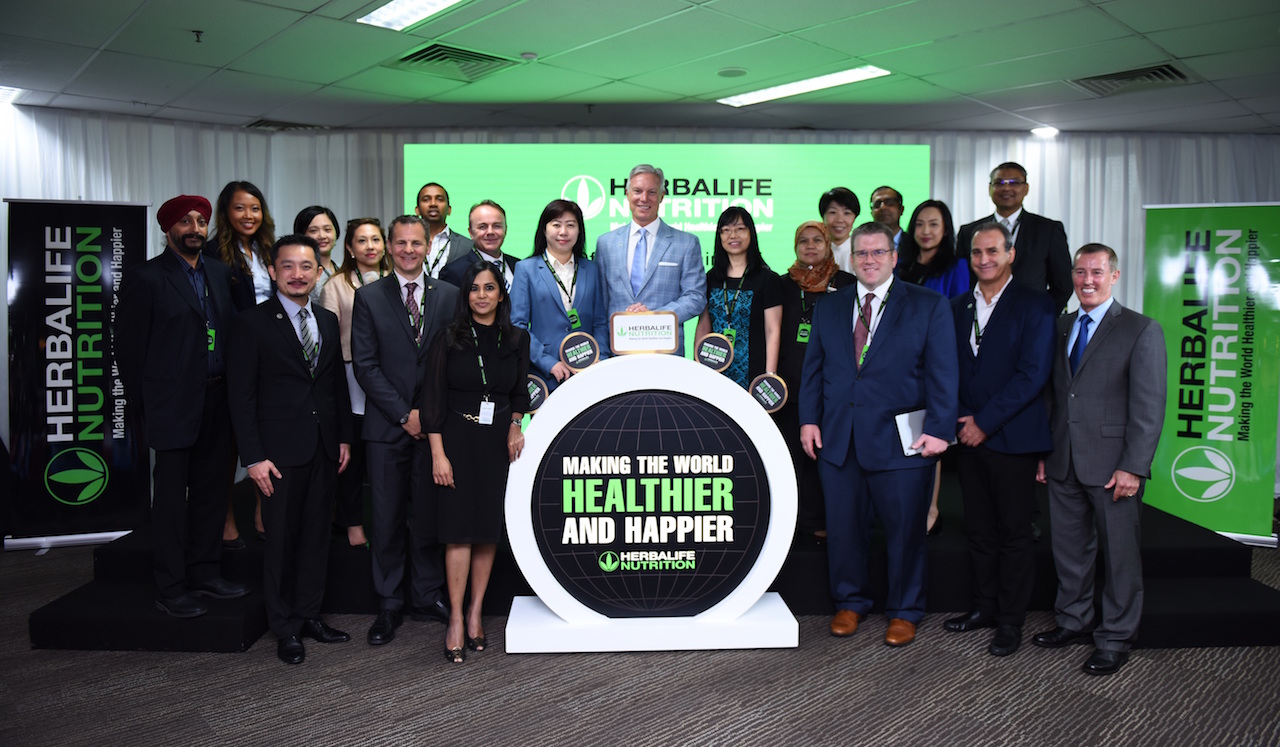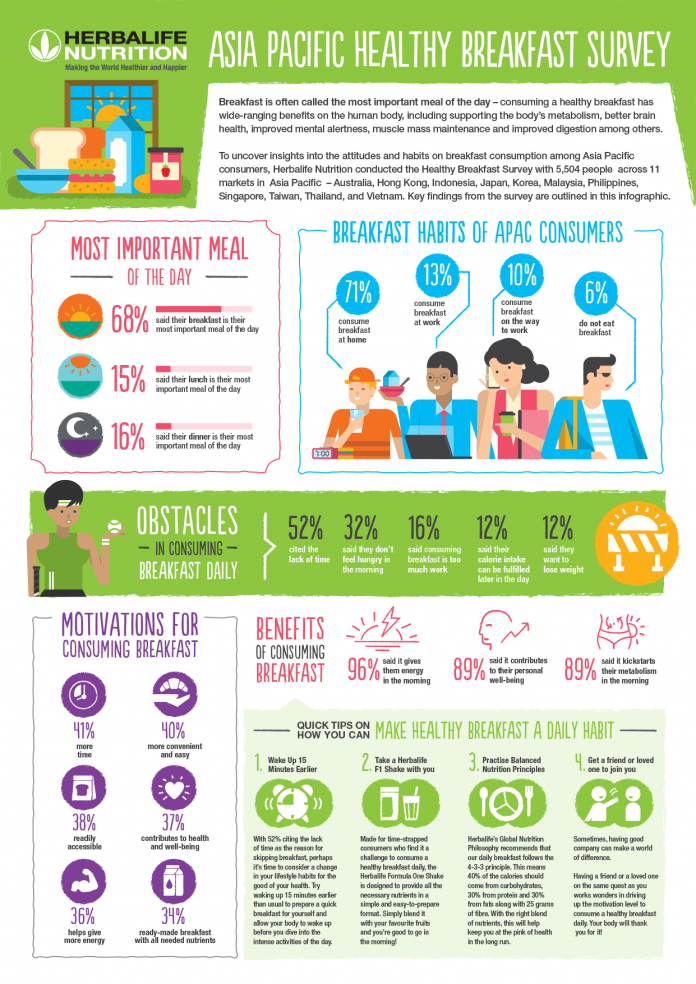Based on the survey findings, majority of Asia Pacific consumers understand the importance of breakfast, with eight in 10 (79 percent) consumers considering breakfast very or extremely important to them, and 68 percent affirming it as the most important meal of their day, ahead of the 15 percent who chose lunch, and the 16 percent who chose dinner as their most important meal of the day.
When asked about the benefits they can reap as a result of consuming breakfast:
- 96 percent of respondents said “gives them energy in the morning”
- 89 percent said “contributes to their personal well-being”
- 89 percent said “kick starts their metabolism in the morning”
When asked about their breakfast consumption habits:
- 71 percent make it a priority to eat their breakfast at home
- 13 percent eat their breakfast at work
- 10 percent eat their breakfast on the way to work
- Only 6 percent of respondents do not eat breakfast
What are APAC consumers eating for breakfast?
In terms of nutrient composition, the survey showed that while 40 percent of respondents consider protein as the most important nutrient in their breakfast, carbohydrates still made up most of the calories consumed by respondents at breakfast. In fact, carbohydrate-heavy foods such as bread or toast (49 percent), traditional-style breakfast such as rice and noodles (46 percent), and hot beverages (46 percent) top the list of breakfast foods regularly consumed by Asia Pacific consumers.
According to the Herbalife Nutrition Philosophy, the calorie intake for every meal should be made up of 40 percent carbohydrates, 30 percent protein and 30 percent fats, along with 25g of fiber and eight glasses of water daily to promote overall well-being.
Obstacles to consuming breakfast daily
While the survey indicated that a good majority consume breakfast daily, it also revealed that many still encounter real obstacles in making breakfast a daily habit. The top three barriers cited include:
- Lack of time (52 percent)
- Lack of feelings of hunger in the morning (32 percent)
- Consuming breakfast requires too much preparation (16 percent)
When asked about the motivations that would help them eat breakfast daily:
- 41 percent of respondents said “having more time”
- 40 percent said “making breakfast more convenient and easy”
- 38 percent said “having a breakfast readily accessible”
Herbalife Asia Pacific Wellness Tour
To educate Asia Pacific consumers on how to adopt positive nutrition habits for a healthier and happier life, Herbalife will be bringing its ninth Asia Pacific Wellness Tour to the region from April 13 to May 27. Featuring a series of medical symposia and nutrition talks held in cities across Cambodia, Hong Kong, Indonesia, Korea, Macau, Malaysia, Philippines, Singapore, Taiwan and Thailand, the Tour will also see Herbalife fitness experts and Herbalife Nutrition Advisory Board (NAB) members sharing their expertise on a variety of health-related topics, with a focus on educating the public on the importance and benefits of consuming breakfast daily, while helping them to cultivate healthy breakfast habits that promote their overall well-being.
Herbalife launched its first Asia Pacific Shared Services Center (SSC) in Kuala Lumpur

Herbalife has also on April 16, officially launched its first Asia Pacific Shared Services Center (SSC) in Kuala Lumpur, Malaysia. Occupying two floors of Horizon 2 in the Bangsar South enclave of Kuala Lumpur, the new SSC is the fifth such center to be launched globally as part of Herbalife’s Global Business Services Centers (GBSC) strategy, housing over 100 employees to support the growing demand for nutrition in the Asia Pacific region, and around the world.
The new SSC in Kuala Lumpur joins other centers around the globe in Guadalajara, Mexico; Queretero, Mexico; Krakow, Poland; and Bangalore, India, with the aim of streamlining business operations, standardizing service standards and enabling increased agility for Herbalife’s growing nutrition business. Fully equipped to support back-office operations such as finance and accounting, global sourcing, information technology, member business practices and compliance as well as Member Technology and Strategy (MTS), the Kuala Lumpur SSC features a skilled team adept at working across geographies and specializations to drive increased business efficiency and cost effectiveness for more sustainable operations in the long run.









